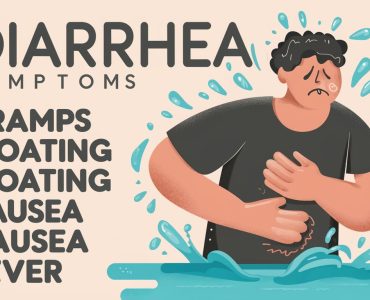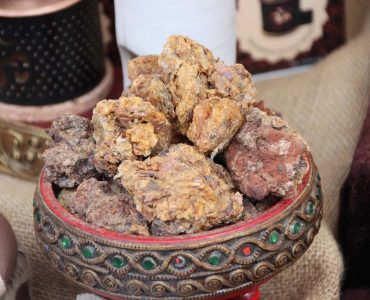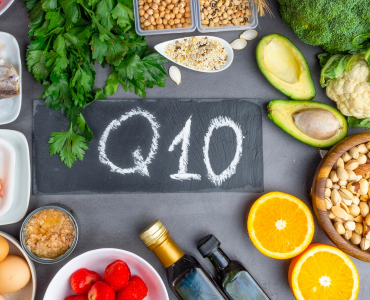L-tyrosine is a nonessential amino acid (protein building block) that the body synthesizes from phenylalanine, another amino acid. Tyrosine is important to the structure of almost all proteins in the body. It is also the precursor of a few neurotransmitters, including L-dopa, dopamine, norepinephrine, and epinephrine. Tyrosine is also used by skin cells to produce the dark pigment melanin, which helps protect the skin from the damaging effects of UV radiation in sunlight.
Dairy products, meats, fish, wheat, oats, and most other protein-containing foods contain tyrosine.
What it does
- Anti-Depressant: Tyrosine is a precursor to the mood elevating compound dopamine. When taken with 5-HTP it may alleviate mild depression.
- Appetite Supression: A deficiency of tyrosine may increase appetite, whereas excess tyrosine, (more than 20g daily) may decrease appetite.
- Cognitive Performance: Aside from dopamine, tyrosine converts into other stimulatory brain chemicals, such as noradrenaline (norepinephrine), which may ultimately enhance mental alertness. Tyrosine levels typically decline with age and low levels of tyrosine-derived neurotransmitters are seen in patients with Alzheimer’s disease.
- Stress support: Tyrosine is required to manufacture stress-regulating hormones such as adrenaline and noradrenaline which are depleted during times of stress.
- Thyroid Hormone Synthesis: Tyrosine is required to manufacture thyroid hormones and may be of value as part of a programme in the management of hypothyroidism.
Potential Uses
| Depression | Stress |
Mental fatigue |
| Cognitive performance | Appetite control | Hypothyroidism |
| PKU ( to offset deficiency of tyrosine) |
Cautions
If you are taking MAOI medication, you have high blood pressure or melanoma, do not take tyrosine without first consulting your doctor.
Do not use in pregnancy or when breastfeeding.
People with liver or kidney disease should consult their doctor before taking high level amino acid or protein supplements.
What are food sources of tyrosine?
Good food sources of tyrosine include:
- Poultry
- Fish
- Eggs
- Dairy products
- Legumes
- Nuts and seeds
- Whole grains
Is it OK to take tyrosine every day?
Yes, it is generally safe to take tyrosine every day. However, it is important to start with a low dose and increase it gradually to avoid any side effects. The recommended daily dose of tyrosine is 500-1,500 mg.
What are the symptoms of low tyrosine levels?
Symptoms of low tyrosine levels include:
- Fatigue
- Depression
- Anxiety
- Difficulty concentrating
- Poor memory
- Mood swings
Is tyrosine bad for anxiety?
Tyrosine is not generally considered to be bad for anxiety. In fact, some research suggests that tyrosine may help to reduce anxiety symptoms. However, it is important to note that tyrosine can interact with certain medications, so it is always best to talk to your doctor before taking tyrosine supplements, especially if you have anxiety.
What food is highest in tyrosine?
The food that is highest in tyrosine is turkey. Turkey contains approximately 500 mg of tyrosine per 100 grams.
What foods are high in tyrosine for ADHD?
The foods that are highest in tyrosine for ADHD include:
- Poultry
- Fish
- Eggs
- Dairy products
- Legumes
- Nuts and seeds
- Whole grains
How much tyrosine for ADHD?
The recommended dosage of tyrosine for ADHD is 500-1,500 mg per day. However, it is important to start with a low dose and increase it gradually to avoid any side effects. It is also important to talk to your doctor before taking tyrosine supplements, especially if you are on any other medications.
Is L-tyrosine similar to Adderall?
L-tyrosine is an amino acid that is used to produce dopamine, norepinephrine, and epinephrine, neurotransmitters that are important for mood, focus, and energy. Adderall is a prescription medication that is used to treat ADHD. Adderall works by increasing the levels of dopamine and norepinephrine in the brain.
While L-tyrosine and Adderall both increase the levels of dopamine and norepinephrine in the brain, they work in different ways. L-tyrosine is a precursor to dopamine and norepinephrine, which means that it is used to produce these neurotransmitters. Adderall is a stimulant that increases the release of dopamine and norepinephrine from nerve cells.
Can I take L-tyrosine instead of Adderall?
L-tyrosine is not a substitute for Adderall. Adderall is a prescription medication that is used to treat ADHD. L-tyrosine is a dietary supplement that is used to support mood, focus, and energy.
If you are considering taking tyrosine supplements, it is important to talk to your doctor first, especially if you are taking any other medications.
Who should not take tyrosine?
People with the following conditions should not take tyrosine:
- Schizophrenia
- Bipolar disorder
- Parkinson’s disease
- Hyperthyroidism
- Pheochromocytoma
What should you not mix with L-tyrosine?
You should not mix L-tyrosine with the following medications:
- MAO inhibitors
- SSRIs
- SNRIs
- Tricyclic antidepressants
- Lithium
Does tyrosine make you happier?
Tyrosine may help to improve mood by increasing the levels of dopamine, a neurotransmitter that is associated with happiness and pleasure. However, more research is needed to confirm this effect.
What causes tyrosine deficiency?
Tyrosine deficiency can be caused by a number of factors, including:
- Poor diet
- Certain medical conditions, such as phenylketonuria and Hartnup disease
- Certain medications, such as MAO inhibitors and SSRIs
What are the side effects of taking tyrosine?
The side effects of taking tyrosine are generally mild and go away on their own. However, some people may experience side effects such as:
- Stomach upset
- Nausea
- Vomiting
- Diarrhea
- Headache
- Anxiety
- Insomnia
What does tyrosine do in the brain?
Tyrosine is used to produce dopamine, norepinephrine, and epinephrine, neurotransmitters that are important for mood, focus, and energy. Dopamine is associated with happiness, pleasure, and reward





